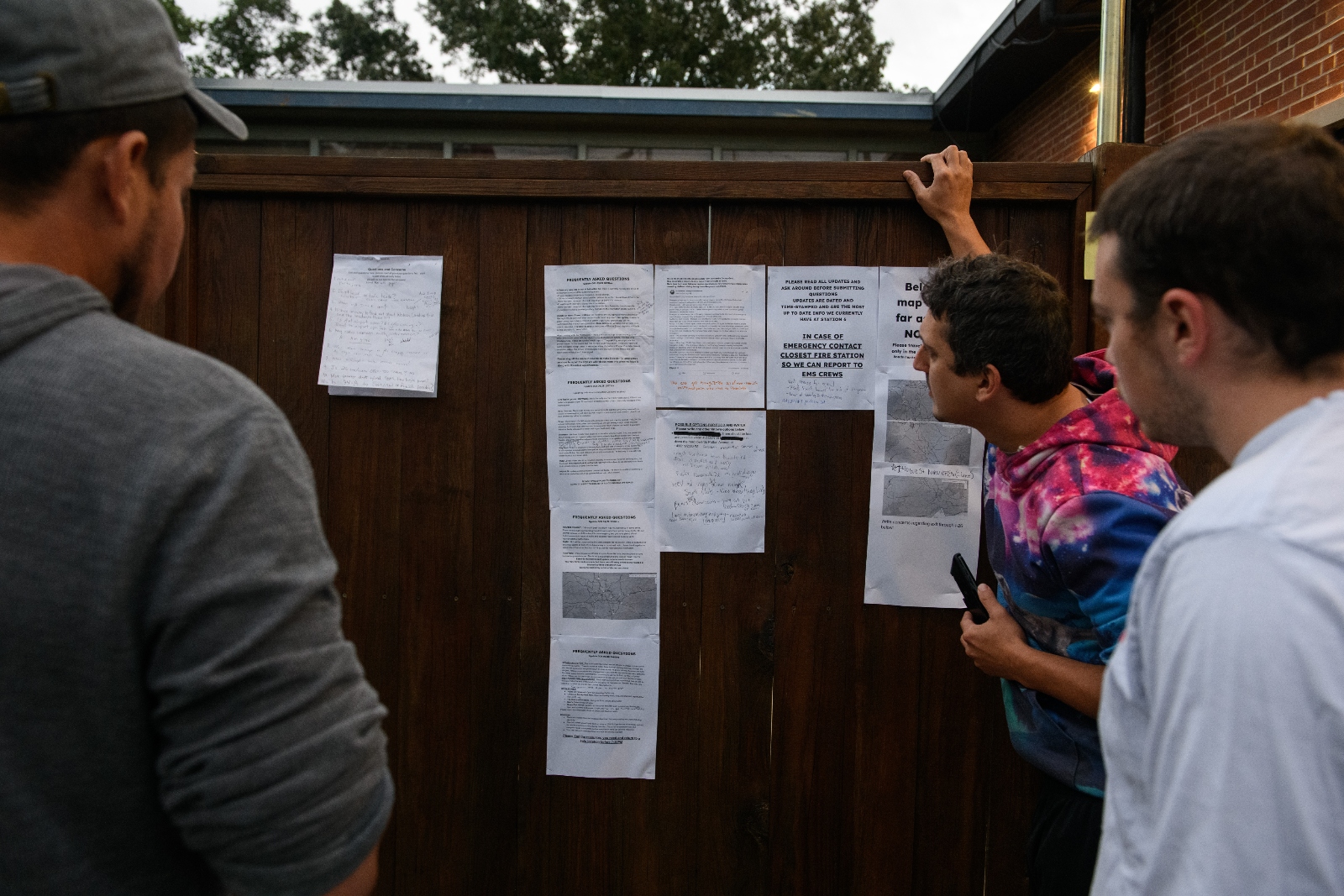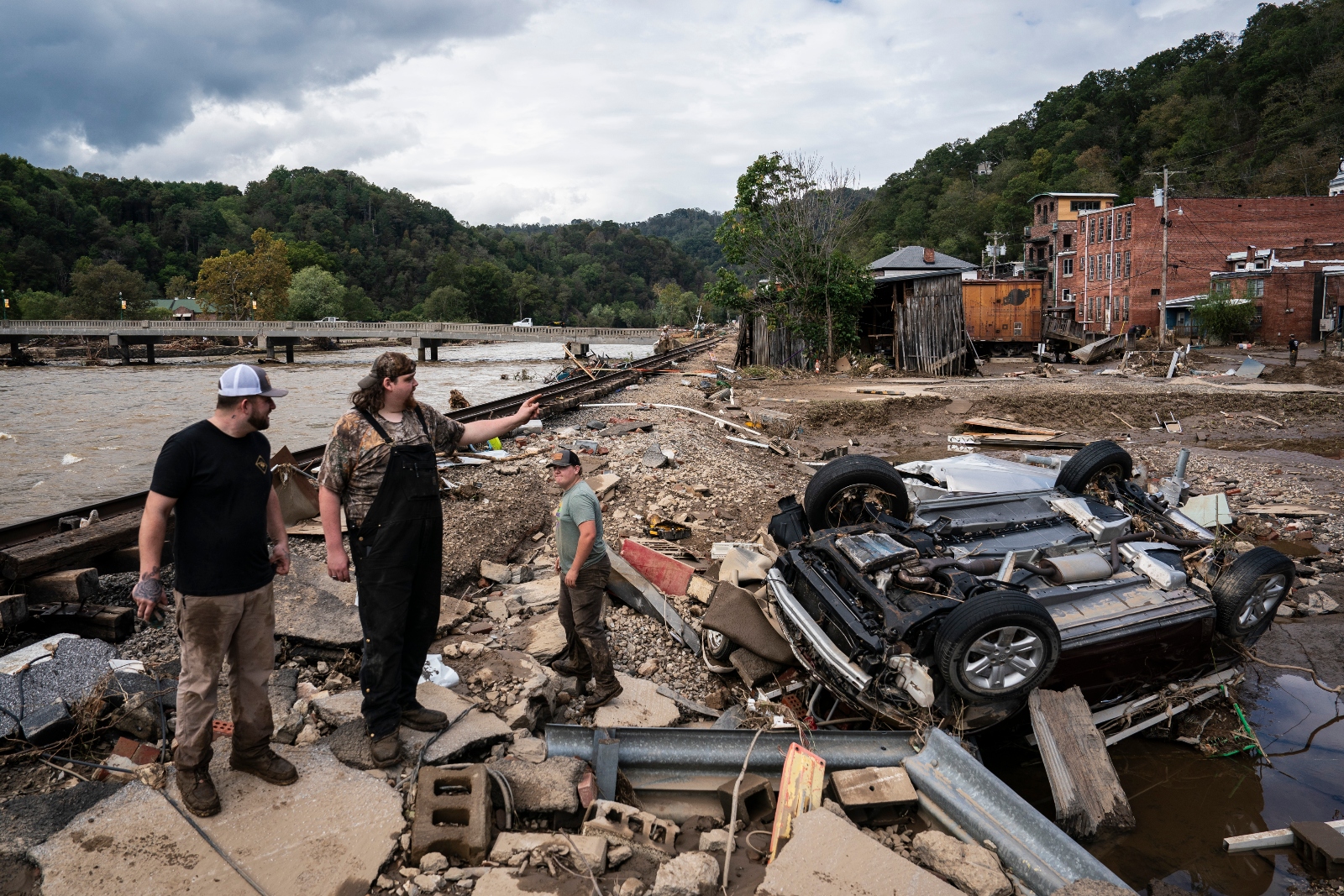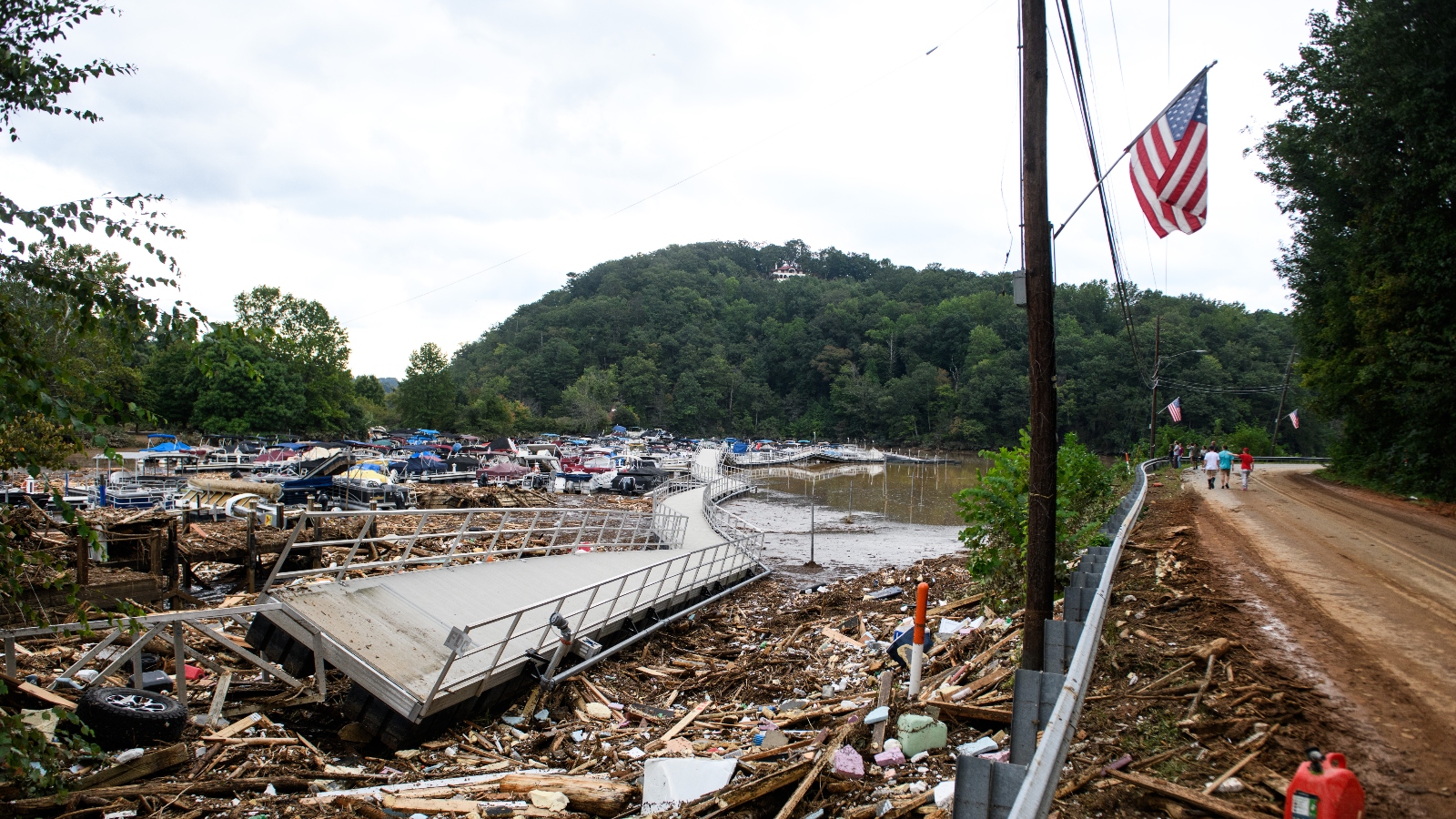There are battleground states, and then there’s North Carolina. Former President Donald Trump won the state by 1.3 percent in 2020, his lowest margin of victory in any state, and polls now show Trump and Vice President Kamala Harris within just 2 percentage points of each other there. It also has more electoral votes than several of the other swing states that will decide the November election, including Michigan, Wisconsin, and Arizona.
“Kamala Harris wins North Carolina, she is the next president of the United States,” Roy Cooper, the Democratic governor of North Carolina, said at an event in New York City last week.
Then Hurricane Helene etched a 500-mile path of destruction through the southeastern United States, killing at least 139 people in six states and causing more than $100 billion in damages, according to preliminary estimates.
In western North Carolina, moisture-laden Helene collided with a cold front that was already dropping rain on the Appalachian Mountains. Hundreds of roads in the region are now impassable or have been wiped off the map by flooding and landslides, communication systems are down, and hundreds of people are still missing. As the North Carolina Department of Transportation put it, “All roads in Western North Carolina should be considered closed.” With just weeks until November 5, thousands of people displaced, mail service shut down or restricted in many ZIP codes, and many roadways shuttered, officials are now rushing to figure out how to handle voting in the midst of disaster.
“This storm is like nothing we’ve seen in our lifetimes in western North Carolina,” Karen Brinson Bell, one of North Carolina’s top election officials, told reporters on Tuesday. “The destruction is unprecedented and this level of uncertainty this close to Election Day is daunting.”
Delivery of absentee ballots in North Carolina had already been delayed by three weeks by former presidential candidate Robert F. Kennedy Jr.’s last-minute lawsuit to take his name off of millions of already-printed ballots. The state’s election process is already in full swing: the deadline for voter registration in North Carolina is October 11, the early voting period in the state begins on October 17, and early voting ends on November 2. “We will take the measures necessary to ensure there is voting,” Brinson Bell said. But there are innumerable issues to solve first, and state officials still don’t have a full assessment of the damage Helene caused.
“There’s a cascading series of problems,” said Gerry Cohen, a member of the elections board for Wake County, the state’s most populous county, which includes Raleigh.
At the moment, the central logistical problem is that the U.S. Postal Service has suspended service across much of western North Carolina. Even before the storm, more than 190,000 North Carolinians had requested mail-in ballots this election. The agency does not yet have an estimate of when mail will be restored — damage is so severe in some ZIP codes that it may be weeks or even months before local roads are passable. The issue is compounded by the fact that in rural areas, some postal workers use their own vehicles to deliver mail. Neither the state nor the Postal Service knows how many of those cars were destroyed by the storm.
“At this time, we are still assessing damage and impacts,” a spokesperson for the Postal Service told Grist. “As we continue our work on this, we will continue to communicate with local boards of election in impacted areas to ensure the ongoing transport and delivery of election mail as soon as it is safe to do so.”

Melissa Sue Gerrits / Getty Images
Under state law, it is up to each voter to request a new ballot to the temporary address where they are staying. Voters must mail these ballots back in time for them to reach election offices by 7:30 p.m. on Election Day. The state used to have a three-day grace period for late-arriving ballots, but it ended that policy last year. The Elections Board is currently assessing whether it will ask the state to reinstate it. There’s also no way of tracking where the absentee ballots that counties already sent out ended up, or whether the delivery of those ballots was affected by the storm. “Who knows where they are,” Cohen said.
And then there’s the matter of in-person voting, which faces further logistical hurdles. Brinson Bell said that while there have been no reports of voting equipment or ballots destroyed by Helene, 12 county election offices in western North Carolina are currently closed due to flooding and other storm-related impacts. “There may be polling places affected by mudslides, there may be polling places inaccessible because of damaged roads, there may be polling places with trees that have fallen on them,” Brinson Bell said. There’s no saying, yet, how many of the people who will staff these polling places have been displaced, hurt, or killed by the storm.
Every county in North Carolina must offer at least 13 days of in-person early voting, and right now the state requires counties to open this process on October 17. Cohen said that many counties will struggle to meet that deadline, in particular smaller ones.
“The smaller counties just had one early voting location, and it’s normally at the board of elections office, which is usually downtown,” he said. “Because of the way these mountain towns were laid out in the 1700s or 1800s, they’re near rivers and creeks, so they’re prone to flooding.”
Cohen said he’s heard that the North Carolina legislature, which will convene next week, is considering some flexibility for early voting in affected counties, as well as resources to help these counties establish new voting sites and train up replacement poll workers. He believes the state can still manage a robust election if it provides proper support for local election boards — in other words, he said, “appropriate money.”
But the challenge that eclipses all other voting accessibility issues is the simple fact that people who have been affected by a historic and deadly flood event typically aren’t thinking about where they will cast their ballots — they’re focusing on locating their loved ones, mucking out their houses, finding new housing, filing insurance claims, and dozens of other priorities that trump voting.
The State Board of Elections in North Carolina has a website where residents can check their voter registration status, register a new permanent or temporary address, and monitor the progress of their mail-in ballot. But even if people wanted to find out where or how to vote, hundreds of thousands of customers in the state are currently without power, WiFi, and cell service.
For years, political scientists who study the effects of climate change on political turnout have warned about the inevitability of an event like Helene subverting a national election. “Hurricane season in the U.S. — between June and November every year — usually coincides with election season,” a recent report by the International Institute for Democracy and Electoral Assistance, or IDEA, said. “The chances of hurricanes disrupting U.S. elections are ever-present and will increase as hurricanes become more common and intense due to climate change.”

Jabin Botsford / The Washington Post via Getty Images
Prior to Helene, four elections were significantly disrupted by hurricanes in the 21st century: Hurricane Katrina in 2005, Hurricane Sandy in 2012, Hurricane Michael in 2018, and Hurricane Ian in 2022. The report by IDEA found that voter turnout can dip precipitously during these events.
“The biggest challenge that we see is not just technology failure, but a decrease in public confidence,” Vasu Mohan, a senior advisor at IDEA who has analyzed how disasters affect elections in dozens of countries, told Grist. “If you’re not prepared, then making last minute accommodations is extremely difficult.” However, Mohan’s research shows that it’s possible to conduct elections fairly after displacement events if communities are given the resources they need.
“I am very, very worried about how [the storm] will affect voting,” said Abby Werner, a pediatrician who lives in Charlotte, a city in central North Carolina that did not sustain severe damage from the storm. Werner is a Democrat, and makes a point of voting in person. She fears the storm will suppress voter turnout. “In a series of worries it is an additional wave,” she said.
Brinson Bell’s office will likely face a flurry of lawsuits due to its handling of post-storm voting — it is already navigating a lawsuit, filed by Republican groups prior to the storm, over its handling of hundreds of thousands of voter registrations. But Brinson Bell said the COVID-19 pandemic and prior storms prepared the state for worst-case scenarios. “We held an incredibly successful election with record turnout during the COVID pandemic,” she said. “We’ve battled through hurricanes and tropical storms and still held safe and secure elections. And we will do everything in our power to do so again.”

